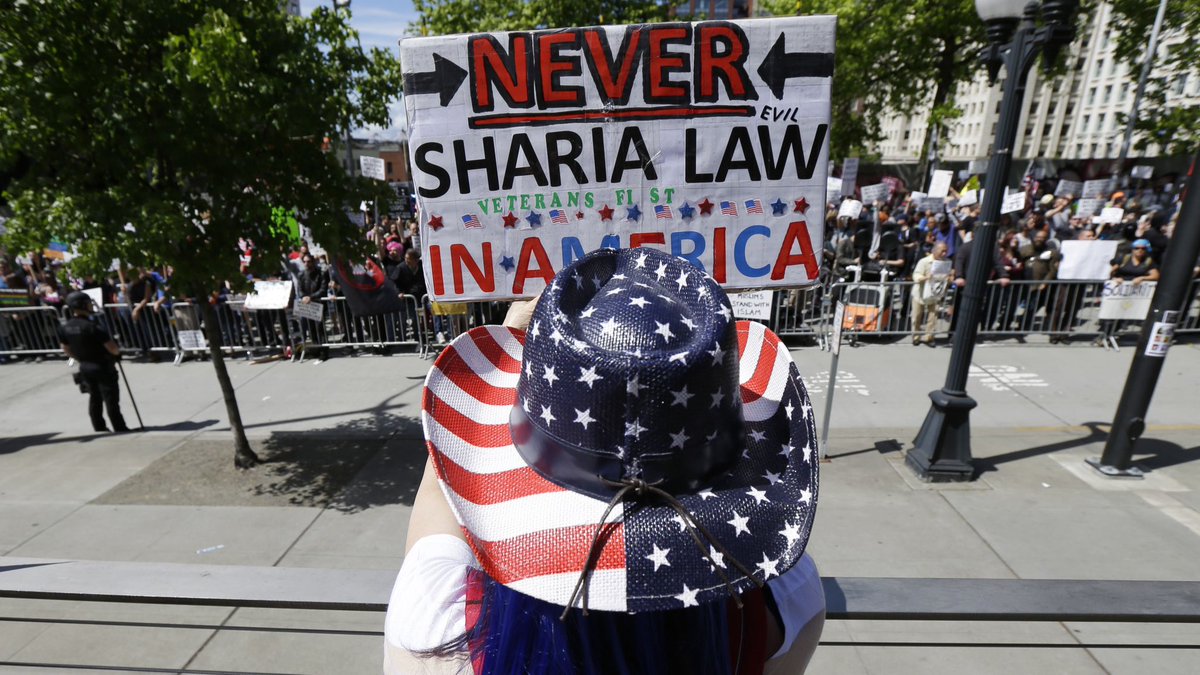BREAKING: Six U.S. States Join Texas in Controversial Sharia Law Ban! What Does This Mean for Religious Freedom?
Breaking News: Sharia Law Banned in Six States
In a significant legal movement, North Carolina, Alabama, Kansas, Louisiana, South Dakota, and Tennessee have officially banned Sharia Law, following Texas’s lead. This decision has sparked nationwide debate over the future of religious laws in America. Proponents argue that banning Sharia Law upholds constitutional values, while opponents view it as an infringement on religious freedom. As states navigate this complex issue, the question remains: should Sharia be banned across the United States? This unfolding situation highlights the tensions between state legislation and religious practices in America. Stay updated on this critical topic.

BREAKING
The American states of North Carolina, Alabama, Kansas, Louisiana, South Dakota, and Tennessee follow Texas’s footsteps and have just officially banned Sharia Law.
Should Sharia be banned across America?
https://t.co/09XKuWKxei
BREAKING
The American states of North Carolina, Alabama, Kansas, Louisiana, South Dakota, and Tennessee follow Texas’s footsteps and have just officially banned Sharia Law. This recent wave of legislation has sparked conversations across the nation about the implications of such bans. Many are asking: should Sharia be banned across America? Let’s dive into this complex issue.
Understanding the Context of Sharia Law
Sharia Law is a legal framework derived from Islamic teachings and is practiced in various forms around the world. It covers a wide range of aspects, including daily routines, ethics, and legal matters. Critics often argue that Sharia Law contradicts American values, while supporters claim that it is a personal choice of believers that should be respected. This debate becomes even more heated when we consider the implications of banning such practices in a country that prides itself on freedom of religion.
The Recent Legislation Across States
The decision by states like North Carolina, Alabama, Kansas, Louisiana, South Dakota, and Tennessee to ban Sharia Law reflects a growing trend in American politics. Advocates of these bans argue they are necessary to protect American values and ensure that no foreign laws undermine the Constitution. However, opponents see it as a discriminatory practice that targets Muslims and infringes on religious freedoms. This development raises essential questions about the balance between upholding American laws and respecting individual rights.
Legal Ramifications and Public Opinion
Legally speaking, the bans on Sharia Law may face challenges. Critics argue that they could violate the First Amendment, which guarantees freedom of religion. Numerous surveys indicate that public opinion on this issue is divided. Some citizens support the bans for national security reasons, while others view them as unnecessary and harmful to community relations. The discussion around whether Sharia should be banned across America continues to evolve as more states consider similar legislation.
Impacts on Communities
The implications of banning Sharia Law extend beyond the legal framework and into the fabric of American communities. Many Muslims fear that such laws could increase discrimination and xenophobia. On the other hand, proponents argue that these measures are meant to protect societal norms. The reality is that fostering understanding and dialogue between different cultural and religious groups may offer a more constructive path forward than outright bans.
Exploring Alternatives
Instead of banning Sharia Law, some suggest that promoting education about Islam and fostering interfaith dialogues could lead to a more inclusive society. By addressing misconceptions and fears, communities can create a more harmonious environment. Engaging in conversations about religious practices and their role in society may help bridge the divide and foster mutual respect.
Should Sharia Be Banned Across America?
This question doesn’t have a straightforward answer. It’s essential to weigh the values of freedom and equality against concerns about national identity and security. As discussions around this topic continue to unfold, it’s crucial for Americans to engage in thoughtful conversations and consider the broader implications of their beliefs and actions. The future of religious freedom in America may depend on how we navigate these complex issues.
For ongoing updates on this topic, check out [this article](https://www.reuters.com/article/us-usa-religion-sharia-idUSKBN2A10H1) for more insights.
